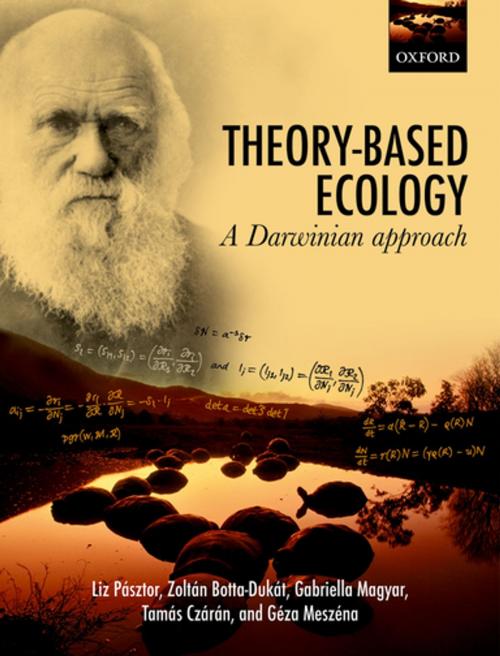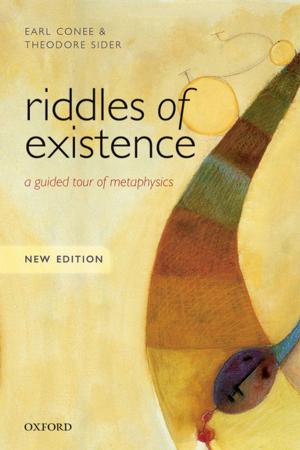Theory-Based Ecology
A Darwinian approach
Nonfiction, Science & Nature, Science, Biological Sciences, Ecology, Nature| Author: | Liz Pásztor, Zoltán Botta-Dukát, Gabriella Magyar, Tamás Czárán, Géza Meszéna | ISBN: | 9780191084157 |
| Publisher: | OUP Oxford | Publication: | June 30, 2016 |
| Imprint: | OUP Oxford | Language: | English |
| Author: | Liz Pásztor, Zoltán Botta-Dukát, Gabriella Magyar, Tamás Czárán, Géza Meszéna |
| ISBN: | 9780191084157 |
| Publisher: | OUP Oxford |
| Publication: | June 30, 2016 |
| Imprint: | OUP Oxford |
| Language: | English |
Ecology is in a challenging state as a scientific discipline. While some theoretical ecologists are attempting to build a definition of ecology from first principles, many others are questioning even the feasibility of a general and universal theory. At the same time, it is increasingly important that ecology is accurately and functionally defined for a generation of researchers tackling escalating environmental problems in the face of doubt and disagreement. The authors of Theory-Based Ecology have written a textbook that presents a robust, modern, and mathematically sound theory of ecology, maintaining a strong link between empirical data, models, and theory. It is firmly based in Darwinian thought, since it was Darwin who first revealed the ecological principles of the origin of species, and gave the evolution of diversity a process-based, mechanistic explanation. The authors base their synthetic theory of Darwinian ecology on seven key principles: exponential growth, growth regulation, inherited individual differences, finiteness and stochasticity, competitive exclusion, robust coexistence, and constraints and trade-offs. Within this solid conceptual framework, they integrate classic and actual empirical knowledge from ecology and evolutionary biology, clarifying methodological and mathematical detail in clear and helpful text boxes. A wealth of illustrated examples pertaining to different organisational levels (alleles, clones and species) helps to explain how the principles operate. This is an invaluable resource for graduate level students as well as professional researchers in the fields of ecology, genetics, evolutionary ecology, and mathematical biology.
Ecology is in a challenging state as a scientific discipline. While some theoretical ecologists are attempting to build a definition of ecology from first principles, many others are questioning even the feasibility of a general and universal theory. At the same time, it is increasingly important that ecology is accurately and functionally defined for a generation of researchers tackling escalating environmental problems in the face of doubt and disagreement. The authors of Theory-Based Ecology have written a textbook that presents a robust, modern, and mathematically sound theory of ecology, maintaining a strong link between empirical data, models, and theory. It is firmly based in Darwinian thought, since it was Darwin who first revealed the ecological principles of the origin of species, and gave the evolution of diversity a process-based, mechanistic explanation. The authors base their synthetic theory of Darwinian ecology on seven key principles: exponential growth, growth regulation, inherited individual differences, finiteness and stochasticity, competitive exclusion, robust coexistence, and constraints and trade-offs. Within this solid conceptual framework, they integrate classic and actual empirical knowledge from ecology and evolutionary biology, clarifying methodological and mathematical detail in clear and helpful text boxes. A wealth of illustrated examples pertaining to different organisational levels (alleles, clones and species) helps to explain how the principles operate. This is an invaluable resource for graduate level students as well as professional researchers in the fields of ecology, genetics, evolutionary ecology, and mathematical biology.















